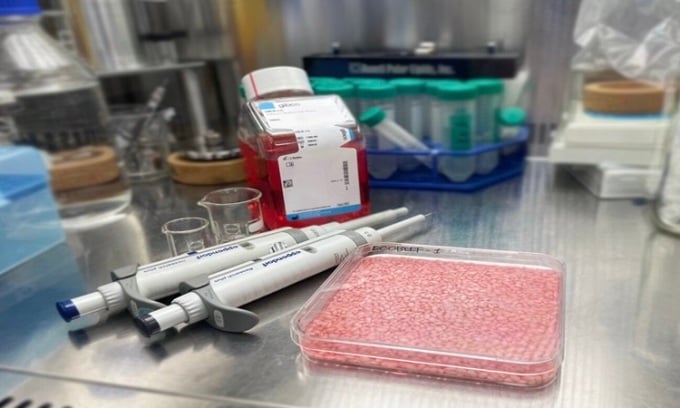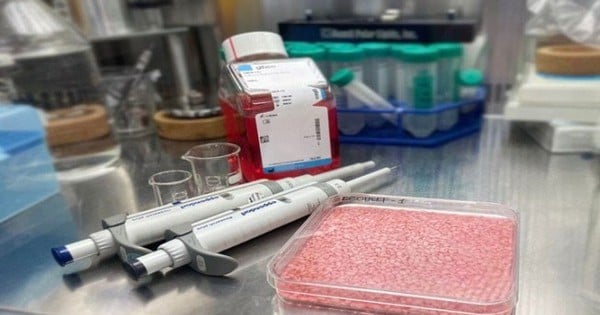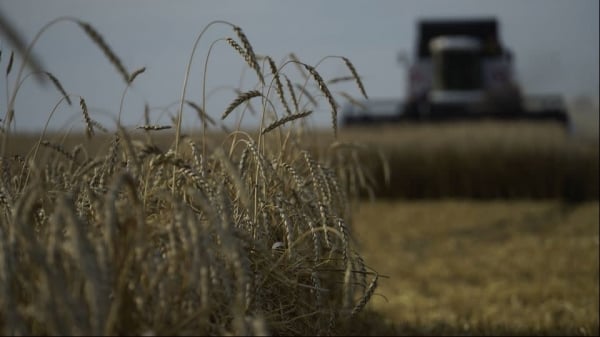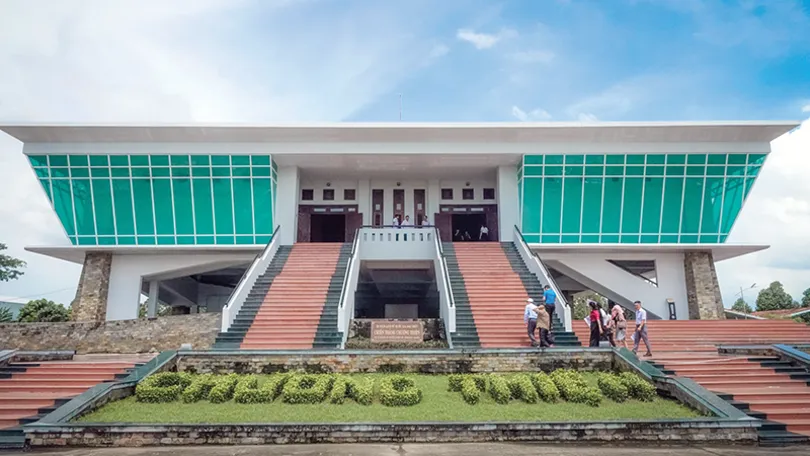South Korea Scientists at Yonsei University, Seoul, have developed a new sustainable food, beef-rice hybrid, that could help tackle the food crisis and climate change.

Lab-grown beef-rice hybrid. Photo: Yonsei University
The new rice was grown in a university lab, combined with beef muscle and fat cells. The result is a pink rice that could provide a cheaper and more environmentally sustainable meat alternative with a small carbon footprint, Phys.org reported on February 18. The team describes the process in the journal Matter.
“Imagine getting all the nutrients you need from cell-cultured protein rice,” said study co-author Park So-hyeon. “Rice already has a high nutrient content, but adding cells from livestock can enhance it.”
The rice grains were coated with fish gelatin to help the beef cells adhere, then grown in a dry dish for 11 days. The final product contained 8% more protein and 7% more fat than regular rice, and was chewier and crispier. The latest product has a much lower carbon footprint because the production process does not require raising animals, which consumes a lot of water and resources and releases large amounts of greenhouse gases.
For every 100 grams of protein, the beef-rice hybrid is estimated to release less than 6.27 kilograms of carbon dioxide (CO2), while beef production releases eight times as much CO2. If commercialized, it could provide a much cheaper option for consumers. The team calculated that the hybrid rice would cost $2.23 per kilogram, while beef costs around $15 per kilogram in South Korea.
Researchers plan to further refine the process before the new rice hits the market to allow for better cell growth, increasing its nutritional value.
An Khang (According to Phys.org )
Source link



![[Photo] General Secretary To Lam attends the 80th Anniversary of the Cultural Sector's Traditional Day](https://vstatic.vietnam.vn/vietnam/resource/IMAGE/2025/8/23/7a88e6b58502490aa153adf8f0eec2b2)
![[Photo] Prime Minister Pham Minh Chinh chairs the meeting of the Government Party Committee Standing Committee](https://vstatic.vietnam.vn/vietnam/resource/IMAGE/2025/8/23/8e94aa3d26424d1ab1528c3e4bbacc45)




































































































Comment (0)